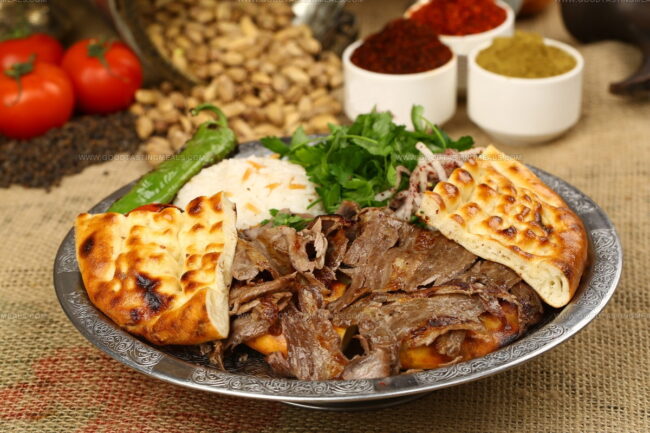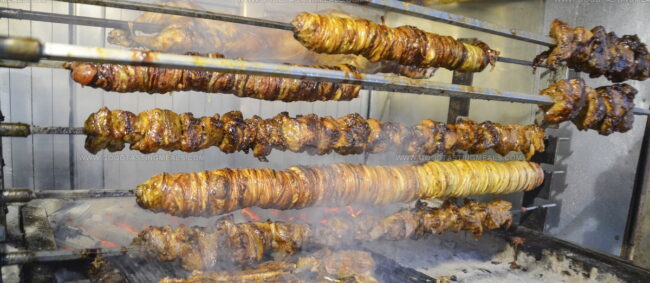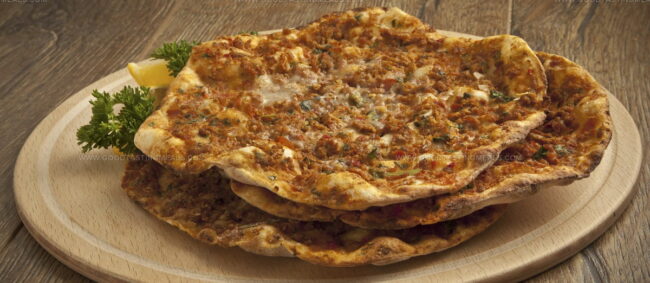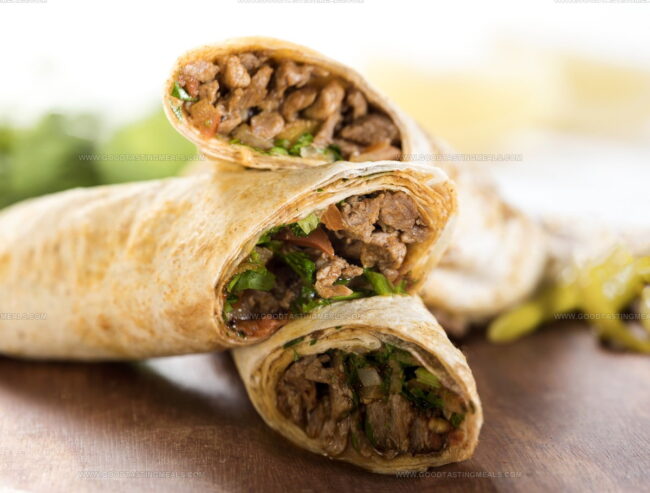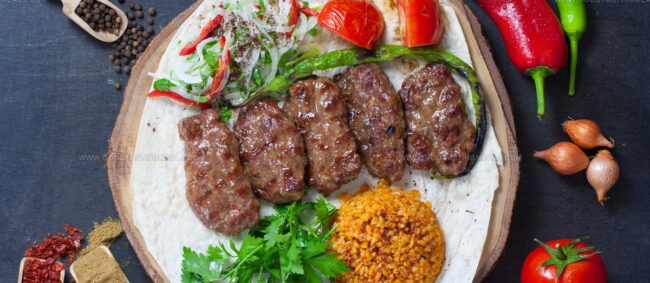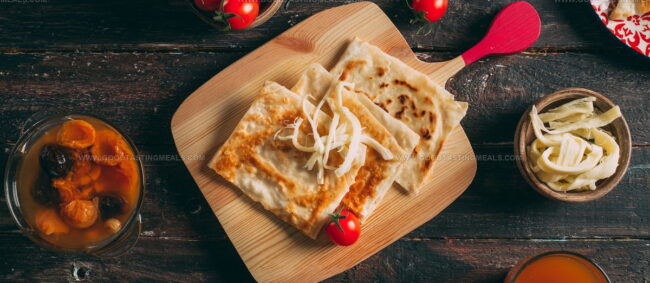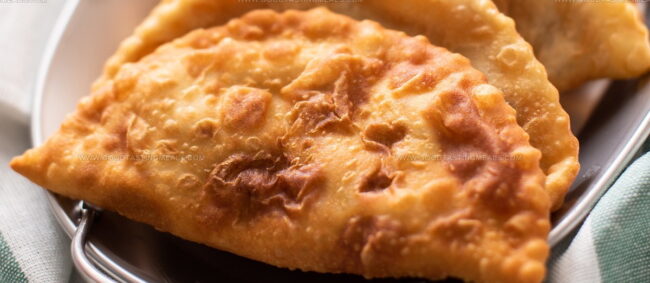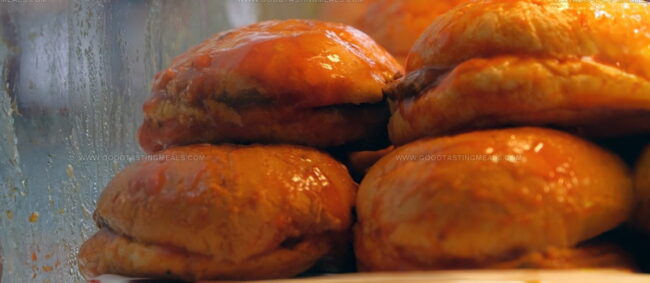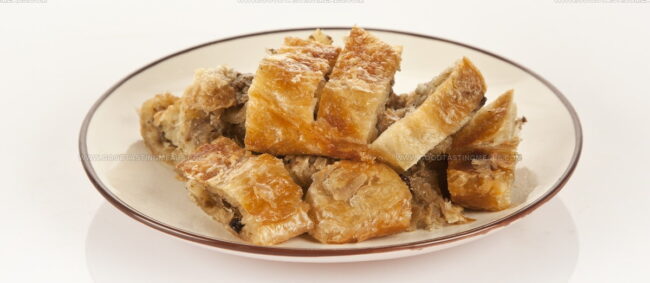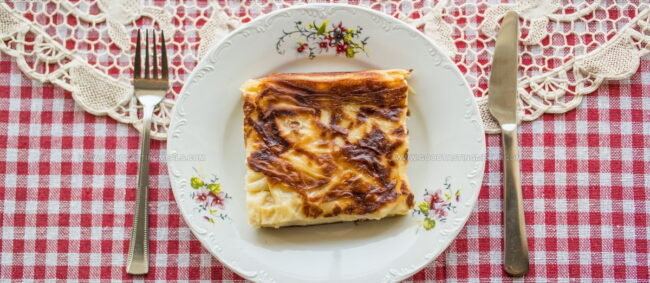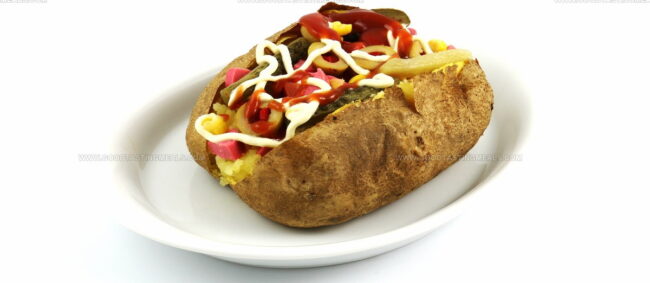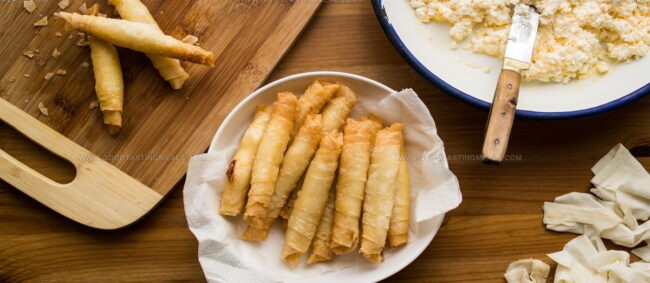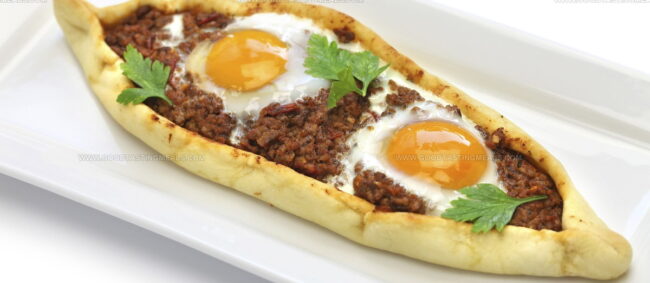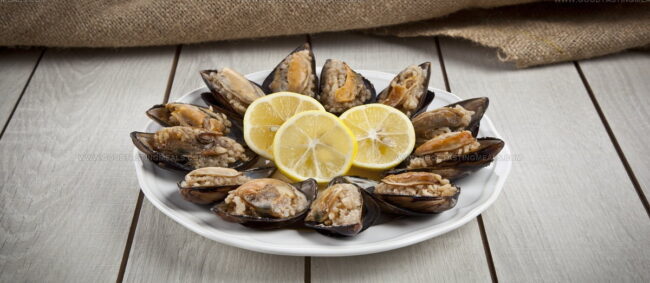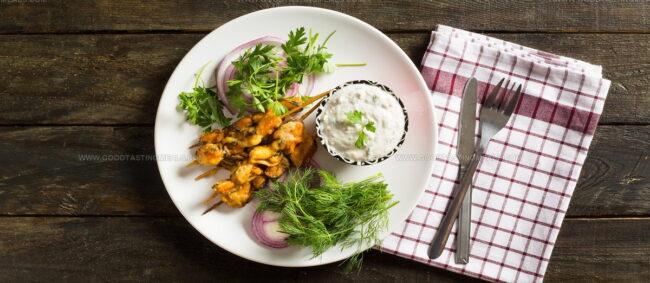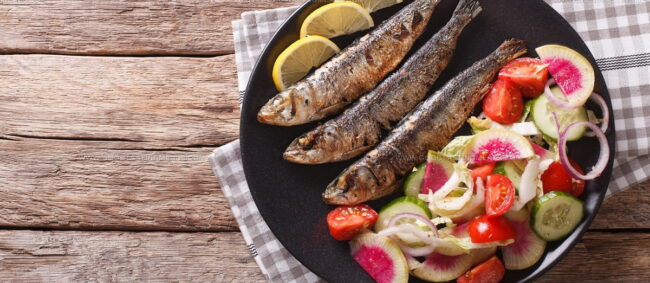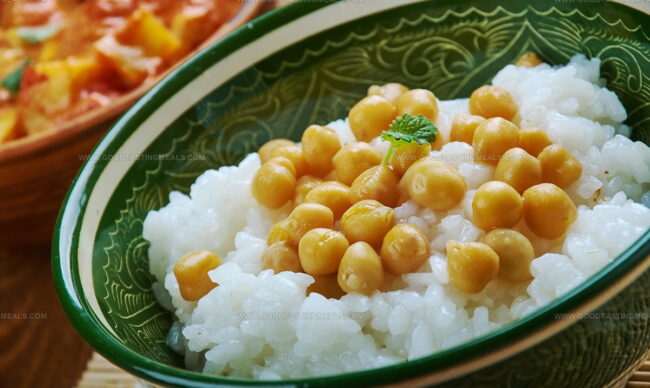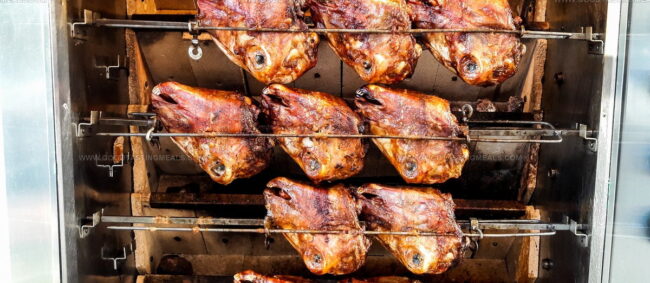21 Epic Turkish Street Foods That Capture Local Flavor
Street foods in Turkey offer a tantalizing journey through culinary traditions that burst with flavor and cultural significance.
Vibrant markets and bustling corners showcase the rich gastronomic heritage of this Mediterranean nation.
These delectable bites represent more than just quick meals - they embody generations of cooking wisdom and community connection.
Turkish street cuisine reflects a delightful blend of regional influences, combining spices, techniques, and ingredients that tell stories of ancient trade routes.
Each recipe carries a unique narrative, transforming simple ingredients into mouthwatering experiences that captivate locals and travelers alike.
The diverse street food landscape represents a delicious testament to Turkey's extraordinary culinary creativity and passion for sharing food.
Prepare to dive into a world of 21 remarkable Turkish street food delicacies that will tantalize your taste buds:
Famous Turkish Street Foods Full of Flavor
Lively city squares in Turkey are never far from the scent of sizzling street food. Whether you crave spiced meat skewers, warm breads, or sweet snacks, these famous bites keep traditions alive and locals coming back for more.
Doner Kebab
Doner kebab stands as a global street food sensation originating from Turkey, featuring marinated meat slowly roasted on a vertical rotisserie and shaved into thin, crispy slices.
Turkish street vendors pioneered this culinary technique in the 19th century, initially using lamb as the primary protein before expanding to beef and lamb combinations.
Spices like cumin, paprika, and oregano infuse the meat with rich, complex flavors during the roasting process.
Berlin street sellers popularized the sandwich version in the 1970s, transforming doner into a portable meal enjoyed worldwide.
Restaurants and street carts across Europe and Middle Eastern countries now serve multiple variations of this iconic dish.
Traditional preparation involves carefully layering seasoned meat on a large vertical spit, allowing fat to drip and create succulent, caramelized edges.
Modern adaptations include chicken and vegetarian options, reflecting its global culinary influence.
Each slice represents a perfect balance of crispy exterior and tender, juicy interior.
Kokorec
Kokorec is a bold street food delicacy featuring grilled lamb intestines wrapped tightly around offal and seasoned with aromatic spices.
Originating in Turkiye and popular across Greece, this hearty dish transforms humble organ meats into a savory street cuisine with deep cultural roots.
Turkish versions meticulously clean small and large intestines before carefully wrapping them around sweetbreads and skewering for charcoal grilling.
Spice blends including oregano, cumin, and chili flakes add intense flavor to the grilled meat.
Vendors typically serve kokorec inside crusty bread or as a standalone dish, making it a quick and satisfying street food option.
Preparation requires significant skill and precision to clean and grill the delicate ingredients.
Charcoal grilling imparts a smoky complexity that elevates the dish's rich flavor profile.
Lahmacun
Lahmacun are thin, crispy flatbreads originating from Middle Eastern regions, traditionally topped with finely minced lamb or beef mixed with aromatic spices and herbs.
These savory street foods spread quickly across Armenia, Syria, Lebanon, and Turkiye as popular quick meals.
Wood-fired ovens create the signature crisp texture while transforming raw ingredients into a mouthwatering experience.
Minced meat blends with chili, onions, and regional seasonings before being spread thinly across stretched semolina dough.
Small versions often serve as appetizers in kebab restaurants and street stalls.
Fresh herbs and optional lemon squeeze enhance the overall flavor profile.
Diners typically roll the crisp flatbread and eat it like a wrap.
Tantuni
Tantuni is a mouthwatering street food masterpiece from Mersin that transforms thinly sliced beef or lamb into a spice-laden culinary experience.
Turkish chefs carefully cook the meat with onions and tomatoes in specialized pans, creating a unique flavor profile that varies with each preparation.
Ground sumac and lemon wedges accompany the dish, which is traditionally wrapped in soft lavash bread.
Originating as an affordable meal for working-class people, tantuni provides substantial nutrition through its fatty meat and bread combination.
Regional spices and herbs give the street food its distinctive taste.
Skilled vendors have developed individual techniques passed through generations.
Each serving promises a slightly different flavor experience.
Mersin's signature street dish continues to delight locals and visitors with its simple yet profound gastronomic appeal.
Kofte
Kofta are small, flavorful meatballs that originated in Turkey as a versatile and beloved appetizer served at social gatherings and special events.
These walnut-sized delicacies blend ground beef or lamb with aromatic spices, creating a savory bite-sized treat that varies across different Turkish regions.
Adana kofte from southeastern Turkey stands out with its distinctive spicy character and traditional cooking techniques.
Cooks prepare these meatballs using carefully selected ground meats and spice mixtures that reflect local culinary traditions.
Easy to make and convenient to eat with toothpicks, kofta remain a popular meze dish at cocktail parties and family gatherings.
Guests enjoy their compact size and rich flavors, which can range from mild to intensely spicy.
Gozleme
Gozleme represents a versatile Turkish flatbread featuring thin dough stretched and filled with savory ingredients like seasoned meat, vegetables, eggs, or cheese before being expertly grilled on a traditional sac griddle.
Wheat flour, water, yeast, olive oil, and yogurt create its distinctive soft, elastic texture.
Nomadic communities originally prepared this portable meal as a quick breakfast or afternoon snack.
Street vendors and small restaurants now serve gozleme as popular fast food throughout Turkey.
Skilled bakers carefully roll the dough paper-thin and fold it around fresh ingredients.
Each region adds unique touches to its preparation method.
Diners enjoy gozleme as a convenient, satisfying meal that balances rustic ingredients with contemporary street food culture.
Cig Borek
Cig borek represents a crispy, deep-fried pastry beloved by Turkiye's Tatar community, featuring a golden-brown semicircle stuffed with seasoned ground meat and occasional cheese.
Originating from traditional Turkish cuisine, this savory treat combines simple ingredients like flour, water, sugar, oil, and salt into a delightful handheld meal.
Skilled cooks carefully fold the dough over a rich filling of ground meat and onions, creating a perfectly sealed package.
Spices infuse the meat with robust flavor, enhancing the overall taste profile.
Deep-frying transforms the pastry into a crunchy exterior with a tender interior, ensuring a satisfying texture.
Turkiye's culinary heritage shines through this compact, flavorful dish that reflects regional cooking traditions.
Wet Burger (Islak Hamburger)
Islak hamburger is a steamed, sauce-soaked street food sensation from Turkey that transforms traditional burger expectations with its uniquely moist texture and intense flavor profile.
Istanbul streets buzz with these wet burgers, where beef patties nestle inside soft buns completely drenched in a robust tomato-based sauce.
Steaming creates an incredibly tender texture that makes the burger practically dissolve when you bite into it.
Street vendors craft these burgers quickly, dunking each bun into a spicy, tangy sauce that saturates every crevice.
Tomatoes and secret spice blends elevate the sauce's complexity, giving each burger a distinct regional character.
Turkish street food culture celebrates this handheld meal as a quick, satisfying bite that locals and tourists alike crave.
Soft buns absorb the rich sauce, ensuring maximum flavor in every single bite.
Preparation involves careful steaming that guarantees maximum moisture and an unparalleled eating experience.
Simit
Simit are iconic circular bread rings from Turkey that symbolize Istanbul's rich street food culture, originating in the 1500s with roots in Arabic bread traditions.
Street vendors sell these sesame-crusted breads throughout city neighborhoods, offering a crispy exterior and soft interior that makes them irresistible.
Bakers create simit by shaping dough, dipping it in fruit molasses water, and coating it generously with toasted sesame seeds before baking to golden perfection.
Turkish people enjoy simit for breakfast with fruit preserves, cheese, or pastrma (salt-cured beef), often paired with hot tea or ayran (salted yogurt drink).
While resembling bagels in dough composition, simit differ through their unique preparation method and distinctive sesame coating.
Breakfast tables and street corners frequently feature these beloved bread rings as a staple morning meal.
Kol Boregi
Kol boregi represents a stunning spiral-shaped Turkish pastry crafted from flaky puff dough and filled with savory ingredients like cheese, spinach, potatoes, or seasoned ground meat mixed with pine nuts and currants.
Turkish bakers carefully roll the pastry into a distinctive arm-like shape, which explains its descriptive name meaning "arm borek" in local language.
Bakers prepare these treats by spreading selected fillings across thin dough sheets before gently rolling them into elegant spirals.
Slow baking ensures a golden, crispy exterior while maintaining a soft interior texture.
Each spiral offers multiple layers of complex flavor combinations that reflect regional culinary traditions.
Mediterranean kitchens frequently serve kol boregi as a popular breakfast or snack item.
Small slices reveal intricate spiral patterns when served on traditional ceramic plates.
Guests enjoy these pastries alongside Turkish tea or coffee for a complete gastronomic experience.
Su Boregi
Su boregi marks a pinnacle of Turkish pastry craftsmanship, requiring exceptional skill to create its signature delicate and moist layers.
Soft dough sheets are carefully soaked in a precise mixture of water, olive oil, milk, and eggs before baking, ensuring an incredibly tender texture.
Traditional fillings feature a classic combination of crumbled white cheese and fresh parsley.
Skilled bakers meticulously layer thin pastry sheets, creating a complex and delicate structure that separates su boregi from other borek varieties.
Turkish households consider this dish a special occasion treat, often served during celebrations and family gatherings.
Bakeries and home cooks take great pride in perfecting the intricate preparation technique.
This beloved pastry represents centuries of culinary tradition in Turkish cuisine.
Kumpir
Kumpir is a hearty Turkish street food potato dish packed with diverse fillings and toppings that transforms a simple baked potato into a customizable meal.
Massive baked potatoes get split open and generously stuffed with creamy mashed potatoes and melted butter before vendors add an impressive array of ingredients.
Kashar cheese blends smoothly into the potato's interior, creating a rich base for additional toppings like pickled vegetables, corn, olsa (sausage), mayonnaise, and ketchup.
Street vendors in major Turkish cities like Istanbul expertly prepare these potatoes, slicing them open and filling them with multiple ingredients right before customers' eyes.
Customers can choose from a wide selection of toppings, making each kumpir a unique culinary experience.
Originating in Istanbul, this street food quickly spread across Turkiye as a quick, satisfying meal.
Kumpir remains popular among locals and tourists seeking a filling and flavorful quick bite.
Sigara Boregi
Sigara boregi are crispy Turkish pastry rolls packed with savory cheese and herbs, deep-fried to golden perfection.
Thin yufka or phyllo dough transforms into delicate triangles filled with crumbled white cheese and chopped parsley.
Cheese mixture often includes eggs for extra richness and binding.
Careful rolling creates a neat cigar-like shape before frying.
Hot oil crisps the exterior while keeping the inner filling creamy and soft.
Traditionally served as a popular appetizer or street food snack.
Families and restaurants across Turkey prepare these irresistible pastry rolls as a beloved quick bite.
Yumurtal Pide
Yumurtal pide is a savory Turkish flatbread originating from Kayseri that combines eggs, cheese, peppers, and tomatoes in a mouthwatering culinary experience.
Bakers craft the bread with soft, chewy oval-shaped dough typical of traditional Turkish pita styles.
Regional cooks often enhance the dish with pastrma, a spice-coated dry-cured beef from Anatolia.
Skilled bakers carefully crack eggs into the center of the flatbread just minutes before completing the baking process.
Tomatoes and peppers add vibrant color and fresh flavor to the dish.
Each ingredient contributes to a rich, balanced taste profile.
Melted cheese binds the toppings together, creating a satisfying texture.
Midye Dolma
Midye dolma are plump mussels expertly stuffed with a fragrant rice mixture that embodies Turkish street cuisine's bold flavors.
Savory spices like saffron, black pepper, and cinnamon infuse the rice filling with complex Mediterranean warmth.
Pine nuts and raisins add delightful texture and subtle sweetness to each carefully prepared mussel.
Traditional preparation involves carefully removing one shell half and filling the remaining shell with spiced rice.
Vendors across Istanbul and coastal Turkish cities sell these handheld delicacies as quick street snacks.
Diners typically squeeze fresh lemon juice over the stuffed mussels before consuming them directly from the shell.
Salt and additional spices sometimes complement the mussel's rich, aromatic profile.
Street food enthusiasts consider midye dolma a quintessential Turkish culinary experience that balances marine freshness with intricate spice blends.
Kumru
Kumru sandwiches showcase Turkish street food heritage from Cesme, blending traditional sinik bread with griddled kasар cheese, spicy sujuk sausage, and fresh tomatoes.
Street vendors first popularized this toasted sandwich in the 1950s, using chickpea flour-enriched bread as its signature base.
Regional bakers crafted the unique bread to complement savory fillings that quickly became local favorites.
Sujuk provides a spicy kick, while melted kasар cheese adds creamy richness to each bite.
Modern variations include pickles and red pepper flakes for extra flavor.
Sausage and cheese create a perfect balance of textures and tastes.
Bread quality remains crucial to authentic kumru preparation.
Mayonnaise and ketchup are generally discouraged by traditionalists.
Midye Tava
Midye tava are crispy, golden-brown mussels deep-fried to perfection and skewered on wooden sticks, representing a popular Turkish street food snack.
Originating from coastal regions of Turkey, these savory bites feature fresh mussels coated in a light, seasoned batter and quickly fried until crunchy.
Vendors typically prepare midye tava in large metal cauldrons with hot oil, creating a sizzling spectacle for hungry passersby.
Street food enthusiasts love these portable treats for their rich maritime flavor and satisfying crunch.
Salt, pepper, and sometimes red pepper flakes enhance the mussels' natural taste.
Coastal communities in Turkey have perfected this simple yet irresistible dish over generations.
Served hot and immediately after frying, midye tava offer a quick protein-packed snack for locals and tourists.
Grilled Sardines (Izgara Sardalya)
Grilled sardines transform fresh Mediterranean seafood into a rustic culinary experience highlighting ocean-fresh flavors.
Mediterranean coastal regions prize these small fish for their simple preparation and robust taste profile.
Fishermen traditionally grill sardines directly over hot charcoal, creating a smoky exterior while maintaining delicate internal moisture.
Olive oil, lemon juice, black pepper, and salt form the classic marinade that enhances sardines' natural richness.
Summer months bring peak sardine availability, making this dish particularly popular among seaside communities.
Grilling takes just minutes, ensuring crisp edges and tender meat.
Served immediately, these sardines offer an authentic taste of Mediterranean coastal cuisine.
Nohutlu Pilav
Nohutlu pilav emerges as a beloved Turkish street food staple combining fluffy white rice with tender chickpeas in a savory blend.
Rice kernels absorb rich vegetable stock while cooking alongside softened onions and aromatic spices.
Butter and oil infuse deep flavor into each grain, creating a satisfying comfort dish.
Turkish vendors frequently serve this hearty pilaf as a quick lunch or side dish across Istanbul and other major cities.
Chicken pieces or pickled chili peppers often accompany the rice for additional texture and zest.
Home cooks and street food experts prepare nohutlu pilav using traditional methods passed through generations.
Small portions make this dish an affordable and filling meal for workers and travelers seeking quick sustenance.
Boyoz
Boyoz represents a savory Turkish pastry originating from Sephardic Jewish immigrants who arrived from Spain during the late 15th century.
Izmir remains the exclusive location where authentic boyoz continues its traditional preparation method.
Crafted with simple ingredients like flour, sunflower oil, and tahini, this pastry creates a unique culinary experience.
Bakers carefully layer and fold the dough to achieve its distinctive flaky texture.
Locals frequently enjoy boyoz as a popular breakfast or street food item.
Sephardic culinary traditions heavily influence its distinctive recipe and preparation technique.
Generations have maintained the original cooking methods passed down through family lines.
Izmir residents consider boyoz an essential part of their regional food culture.
Kuzu Kelle
Kuzu kelle spearheads Turkish culinary adventurousness by transforming whole sheep heads into a unique regional delicacy.
Shepherds and rural communities traditionally prepare this dish through two distinct methods: boiling it cold (kelle sogus) or roasting hot (tandur kelle).
Salt, parsley, and onions generously accent the cold version, while roasted heads emerge steaming from ovens with tender meat carefully separated for guests.
Street vendors sell sliced versions inside buns or wraps, often complemented by chili and fresh herbs.
Restaurants display whole heads alongside assorted vegetables for diners seeking authentic experiences.
Locals frequently enjoy this protein-rich meal as an energizing breakfast before work.
Regional mountain communities consider kuzu kelle a hearty protein source connecting them to pastoral traditions.
Shepherds especially prize this economical dish that wastes no part of their livestock.
What Turkish Drinks Pair Best with Street Food Dishes?
Turkish street food offers a delightful range of flavors, from savory and spicy to sweet and rich, and the right drink can elevate the experience. Here are some popular Turkish beverages that perfectly complement street eats:

